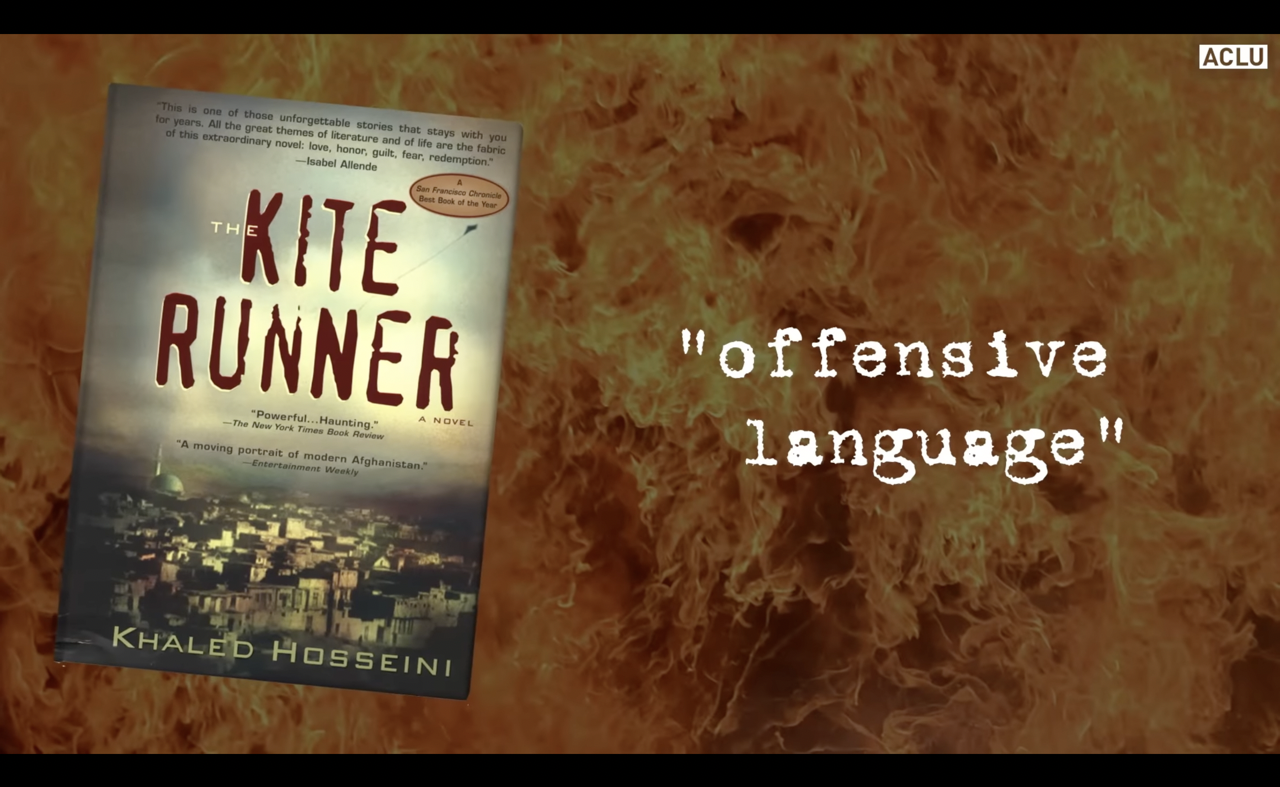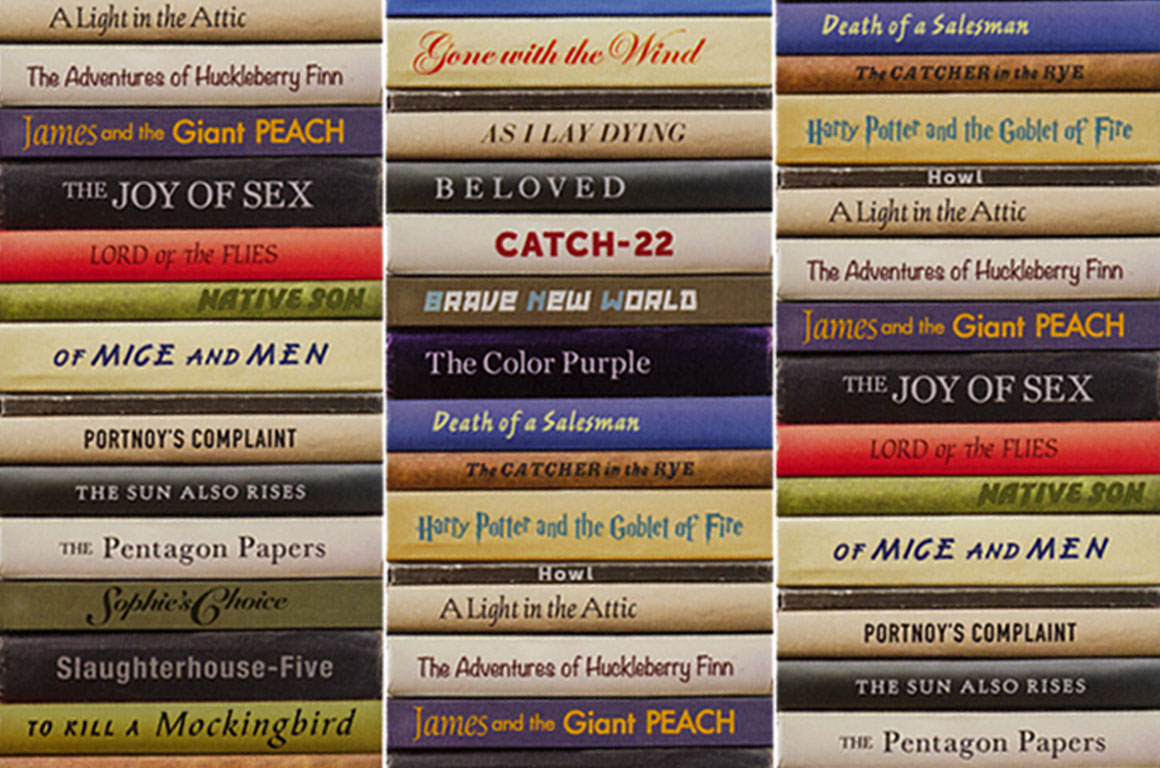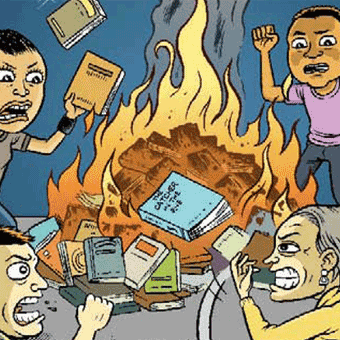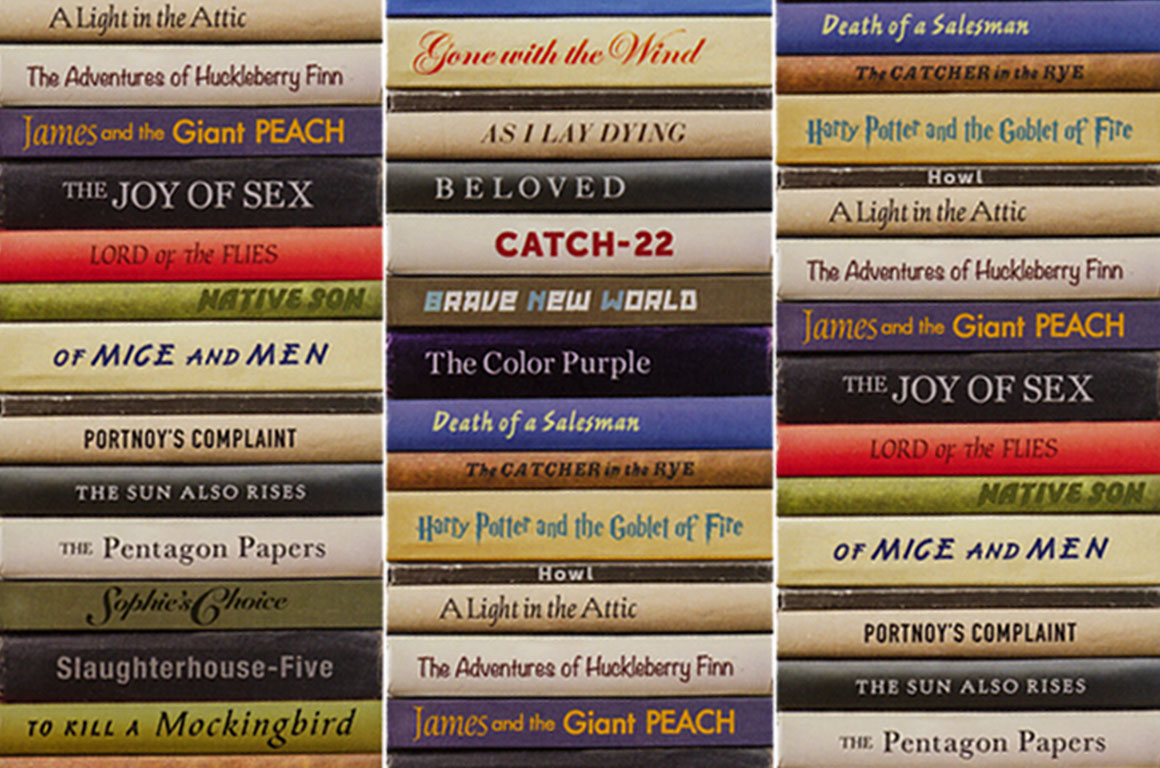Banned Books
#IReadBannedBooks

Ideas are powerful. That’s why intellectual freedom is protected by the First Amendments — and it's also why sometimes governments try to suppress them.
For nearly 100 years, the ACLU has fought to make sure Americans have the right to read what they want. Despite our many victories, there are still misguided attempt to ban books. The American Library Association keeps track — some of the most frequently challenged books from 2015 include the best seller Fifty Shades of Grey along with Fun Home and The Curious Incident of the Dog in the Night-Time (both of which were turned into Tony Award-winning Broadway shows, by the way).
But you can’t keep a good book down. See the menu below for more on those “dangerous” collections of words.

*Lists courtesy of the American Library Association

Interactive Banned Book Shelf
The right to free expression includes the freedom to read whatever we choose. Yet state governments and local school districts have attempted to ban the books shown on this infographic. Hover over each book below to learn a bit about its history.

Shop
Celebrate #BannedBooksWeek with us by getting our Banned Books Tote, and we’ll automatically include a free pack of our classic Banned Books Bookmarks.

First They Came For the Books
Despite clear and simple language in the Bill of Rights, books have always been attacked by those that thought them lewd, dangerous, or offensive....
Source: American Civil Liberties Union

DHS Is Not the Boss of My Library
To kick off #BannedBooksWeek, an IT librarian from New Hampshire explains why anonymous web browsing is critical to free inquiry and intellectual free
Source: American Civil Liberties Union